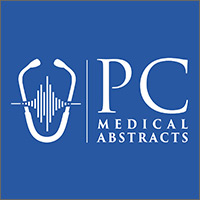User login
The video associated with this article is no longer available on this site. Please view all of our videos on the MDedge YouTube channel
Foy, A.J., et al, JAMA Intern Med 177(11):1623, November 1, 2017
BACKGROUND: Coronary computed tomography angiography (CCTA) is more accurate than functional stress testing for the diagnosis of coronary artery disease, but it is unclear whether this superiority leads to better clinical outcomes.
METHODS: The authors performed a systematic review and meta-analysis of 13 randomized, controlled trials that included 20,092 patients (mean age 58) and compared CCTA (n=10,315) with functional stress testing (n=9,777) in patients being evaluated for coronary artery disease. The primary endpoints included clinical outcomes and changes in therapy.
RESULTS: There was no difference between the groups in the overall mortality rate or the rate of cardiac hospitalization (2.7% in both groups). The CCTA group had a lower incidence of myocardial infarction (0.7% vs. 1.1% in the stress test group), and a higher incidence of revascularization (7.2 vs. 4.5), invasive coronary angiography (11.7% vs. 9.1%), and a new CAD diagnosis (18.3% vs. 8.3%). The CCTA group also had a higher rate of use of aspirin (21.6% vs. 8.2%) and statins (20.0% vs. 7.3%).
CONCLUSIONS: When compared with functional stress testing, CCTA appears to be associated with a decreased incidence of myocardial infarction in patients with chest pain, but an increased probability of revascularization, invasive angiography and medication change. However, rates of cardiac hospitalization and overall mortality were similar in patients evaluated with CCTA vs. functional stress testing. 23 references ([email protected] – no reprints)
The video associated with this article is no longer available on this site. Please view all of our videos on the MDedge YouTube channel
Foy, A.J., et al, JAMA Intern Med 177(11):1623, November 1, 2017
BACKGROUND: Coronary computed tomography angiography (CCTA) is more accurate than functional stress testing for the diagnosis of coronary artery disease, but it is unclear whether this superiority leads to better clinical outcomes.
METHODS: The authors performed a systematic review and meta-analysis of 13 randomized, controlled trials that included 20,092 patients (mean age 58) and compared CCTA (n=10,315) with functional stress testing (n=9,777) in patients being evaluated for coronary artery disease. The primary endpoints included clinical outcomes and changes in therapy.
RESULTS: There was no difference between the groups in the overall mortality rate or the rate of cardiac hospitalization (2.7% in both groups). The CCTA group had a lower incidence of myocardial infarction (0.7% vs. 1.1% in the stress test group), and a higher incidence of revascularization (7.2 vs. 4.5), invasive coronary angiography (11.7% vs. 9.1%), and a new CAD diagnosis (18.3% vs. 8.3%). The CCTA group also had a higher rate of use of aspirin (21.6% vs. 8.2%) and statins (20.0% vs. 7.3%).
CONCLUSIONS: When compared with functional stress testing, CCTA appears to be associated with a decreased incidence of myocardial infarction in patients with chest pain, but an increased probability of revascularization, invasive angiography and medication change. However, rates of cardiac hospitalization and overall mortality were similar in patients evaluated with CCTA vs. functional stress testing. 23 references ([email protected] – no reprints)
The video associated with this article is no longer available on this site. Please view all of our videos on the MDedge YouTube channel
Foy, A.J., et al, JAMA Intern Med 177(11):1623, November 1, 2017
BACKGROUND: Coronary computed tomography angiography (CCTA) is more accurate than functional stress testing for the diagnosis of coronary artery disease, but it is unclear whether this superiority leads to better clinical outcomes.
METHODS: The authors performed a systematic review and meta-analysis of 13 randomized, controlled trials that included 20,092 patients (mean age 58) and compared CCTA (n=10,315) with functional stress testing (n=9,777) in patients being evaluated for coronary artery disease. The primary endpoints included clinical outcomes and changes in therapy.
RESULTS: There was no difference between the groups in the overall mortality rate or the rate of cardiac hospitalization (2.7% in both groups). The CCTA group had a lower incidence of myocardial infarction (0.7% vs. 1.1% in the stress test group), and a higher incidence of revascularization (7.2 vs. 4.5), invasive coronary angiography (11.7% vs. 9.1%), and a new CAD diagnosis (18.3% vs. 8.3%). The CCTA group also had a higher rate of use of aspirin (21.6% vs. 8.2%) and statins (20.0% vs. 7.3%).
CONCLUSIONS: When compared with functional stress testing, CCTA appears to be associated with a decreased incidence of myocardial infarction in patients with chest pain, but an increased probability of revascularization, invasive angiography and medication change. However, rates of cardiac hospitalization and overall mortality were similar in patients evaluated with CCTA vs. functional stress testing. 23 references ([email protected] – no reprints)
Learn more about the Primary Care Medical Abstracts and podcasts, for which you can earn up to 9 CME credits per month.
Copyright © The Center for Medical Education
